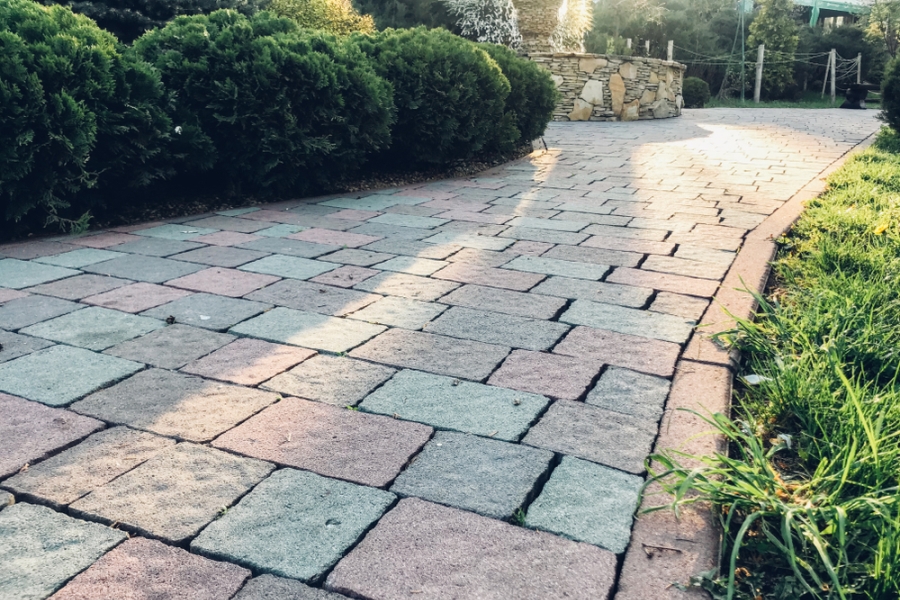Interlocking pavement is a popular choice for driveways, patios, and walkways because of its durability and aesthetic appeal. Made of concrete or stone pavers that are fitted together in a pattern, interlocking pavement is designed to withstand heavy traffic and weather conditions. But should you seal your interlocking pavement? Read on to learn the pros and cons of sealing interlocking so that you can make an informed decision for your home.
The Pros of Sealing Interlocking Pavement
Sealing interlocking pavement has a number of benefits. First, it protects the pavers from staining. Oil, grease, and other liquids can seep into the pores of the concrete or stone, causing permanent stains. Sealing creates a barrier that prevents these liquids from penetrating the surface of the pavers. Second, sealing enhances the color of the pavers and makes them look new again. Over time, sun exposure and weathering can cause the pavers to fade. Applying a sealant will help restore their original color. Third, sealing makes it easier to clean interlocking pavement. Dirt, dust, and other debris can build up on the surface of unsealed pavers, making them difficult to clean. A sealant will make it easier to sweep and mop the surface clean.
The Cons of Sealing Interlocking Pavement
While there are several benefits to sealing interlocking pavement, there are also some drawbacks to consider. First, it is important to note that sealing is not a necessary step in maintaining interlocking pavement; unsealed interlocking will still last for many years without any problems. Second, sealing can be expensive; depending on the size of your project, you may need to hire a professional to do the job properly. Finally, sealed interlocking can be slippery when wet; if you live in an area with a lot of rain or snowfall, you may want to avoid sealing your pavement altogether.
There is no right or wrong answer when it comes to deciding whether or not to seal your interlocking pavement. Ultimately, it comes down to personal preference and budget. If you decide to seal your interlocking, it is a great idea to hire a professional contractor who has experience applying sealants to this type of surface. And if you live in an area with inclement weather conditions, you may want to forego sealing altogether so as not to create a slip hazard.
Our portfolio showcases a variety of successfully completed projects that highlight our ability to enhance outdoor spaces with interlocking designs. Explore our projects.

